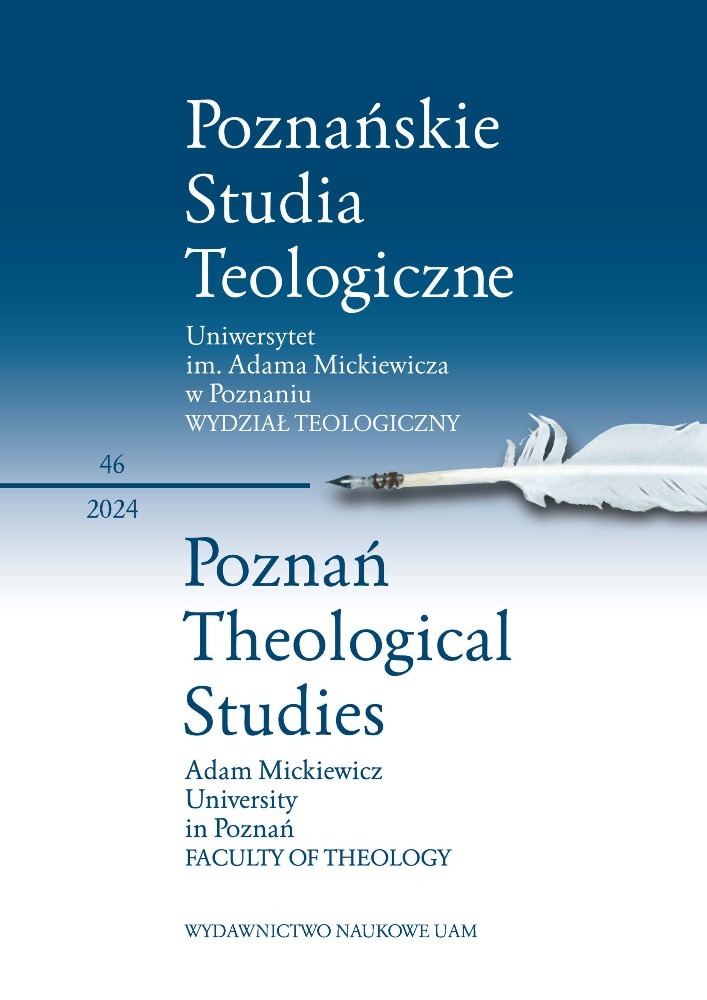Abstrakt
Thomas Morgan był jednym z osiemnastowiecznych deistów brytyjskich. Zaczynał jako ortodoksyjny chrześcijanin, ale szybko skierował się w stronę arianizmu. Odrzucił natchniony charakter Biblii, czyniąc z niej księgę pełną zmyśleń, odrzucił boski status Chrystusa i wiarę, że umarł za grzechy ludzi. W kwestii religii opierał się wyłącznie na rozumie, uznając religię naturalną i uważając chrześcijaństwo tylko za jedną z jej odmian. W swoim racjonalizmie stale odwoływał się do zasady przydatności, nigdy nie wyjaśniając, jakie jest jej znaczenie. Ciekawe, że ostatecznie nieomylność rozumu oparł na inspiracji, którą rozum czerpie bezpośrednio od Boga, co w sumie unieważnia całą jego krytykę chrześcijaństwa. Nazywał siebie chrześcijańskim deistą, ale dzielił z chrześcijaństwem jedynie fizykoteologię, czyli teleologiczny dowód na istnienia Boga.
Bibliografia
Berg Jan van den, A forgotten Christian deist: Thomas Morgan, New York: Routledge 2021. DOI: https://doi.org/10.4324/9781003167389
Chandler Samuel, Sermon preached to the Societies for Reformation of Manners, London: John Oswald 1738.
Clark[e] Samuel, A demonstration of the being and attributes of God, London: Will. Botham 1705.
Clark[e] Samuel, Discourse concerning the unchangeable obligations of natural religion, London: William Botham 1706.
Felton Henry, The Christian faith asserted against deists, Arians, Socinians in eight sermons, Oxford: The Theater 1732.
Fleming William, The vocabulary of philosophy, London: Richard Griffin and Co. 1858.
Gill John, The moral nature and the fitness of things considered, London: Aaron Ward 1738.
Humphreys A.R., “The eternal fitness of things”: an aspect of eighteenth-century thought, “The Modern Language Review” 42 (1947), pp. 188–198. DOI: https://doi.org/10.2307/3717223
Irwin Terence, The development of ethics, New York: Oxford University Press 2008.
Lechler Gotthard Victor, Geschichte des englischen Deismus, Stuttgart: J.G. Cotta’sche Verlag 1841.
Leland John, The divine authority of the Old and New Testament asserted, London: T. Tegg and Son 1837 [1739–1740].
Lucci Diego, Scripture and deism: The Biblical criticism of the eighteenth-century British deists, Bern: Peter Lang 2008.
Morgan, Thomas, A collection of tracts … occasion’d by the late Trinitarian controversy, London: John Osborn and Tho. Longman 1726.
Morgan Thomas, A letter to Mr. Thomas Chubb; occasioned by his two letters to a frien, London: J. Osborn and T. Longman 1727.
[Morgan, Thomas], Philalethes, The moral philosopher, in a dialogue between Philalethes, a Christian Deist, and Theophanes a Christian Jew, London: Charles Ackers 17382
[1737, vol. 1]; London: 1739, vol. 2; London 1740, vol. 3.
Morgan Tho[mas], Philosophical principles of medicine, London: J. Osborn and T. Longman 1730 [1725].
Morgan, T[homas], Physico-theology, or a philosophico-moral disquisition concerning human nature, free agency, moral government, divine providence, London: T. Cox 1741.
Morgan T[homas], The mechanical practice of physick, London: T. Woodward 1735.
M[organ], T[homas], The questions and confession of faith, in: Nicholas Billingsley, A sermon preach’d at the ordination of Mr. Thomas Morgan … With Mr. Morgan’s confession of faith, London: John Clark 1717, pp. 51–65.
Morgan Thomas, Vindication of the Moral Philosopher, against the false accusations, insults, and personal abuses of Samuel Chandler, London: T. Cox 1741.
Price Richard, A review of the principal questions and difficulties in morals, London: A. Millar 1758.
Sayous Édouard, Les déistes anglais et le christianisme principalement depuis Toland jusqu’a Chubb (1696–1738), Paris: G. Fischbacher 1882.
[Watts Isaac], Self-love and vertue reconciled only by religion, London: Richard Hett 1739.
Williams Robert, A Biographical dictionary of eminent Welshmen, Llandovery: William Rees 1852.
Licencja
Prawa autorskie (c) 2024 Adam Drozdek

Utwór dostępny jest na licencji Creative Commons Uznanie autorstwa – Użycie niekomercyjne – Bez utworów zależnych 4.0 Międzynarodowe.

